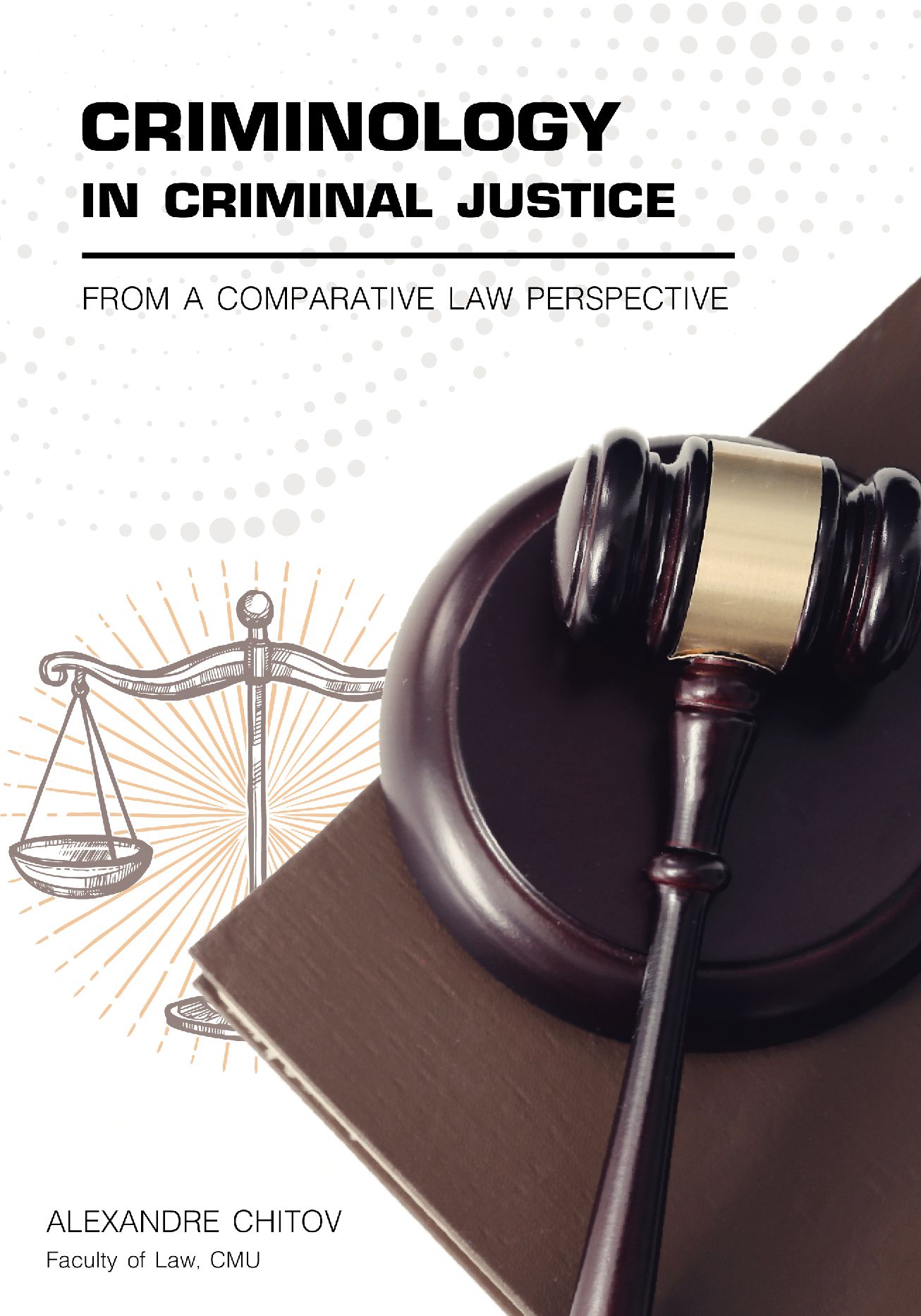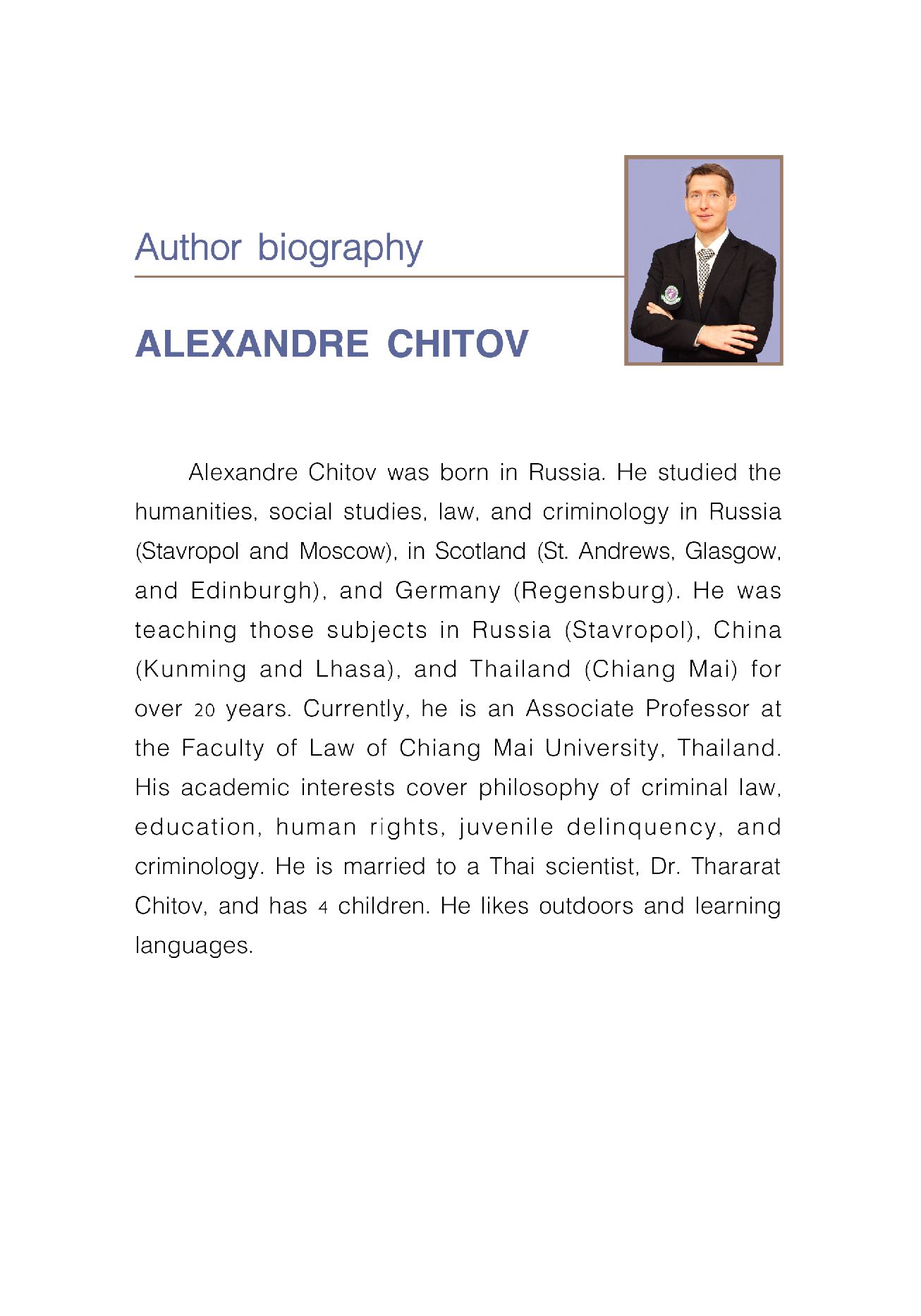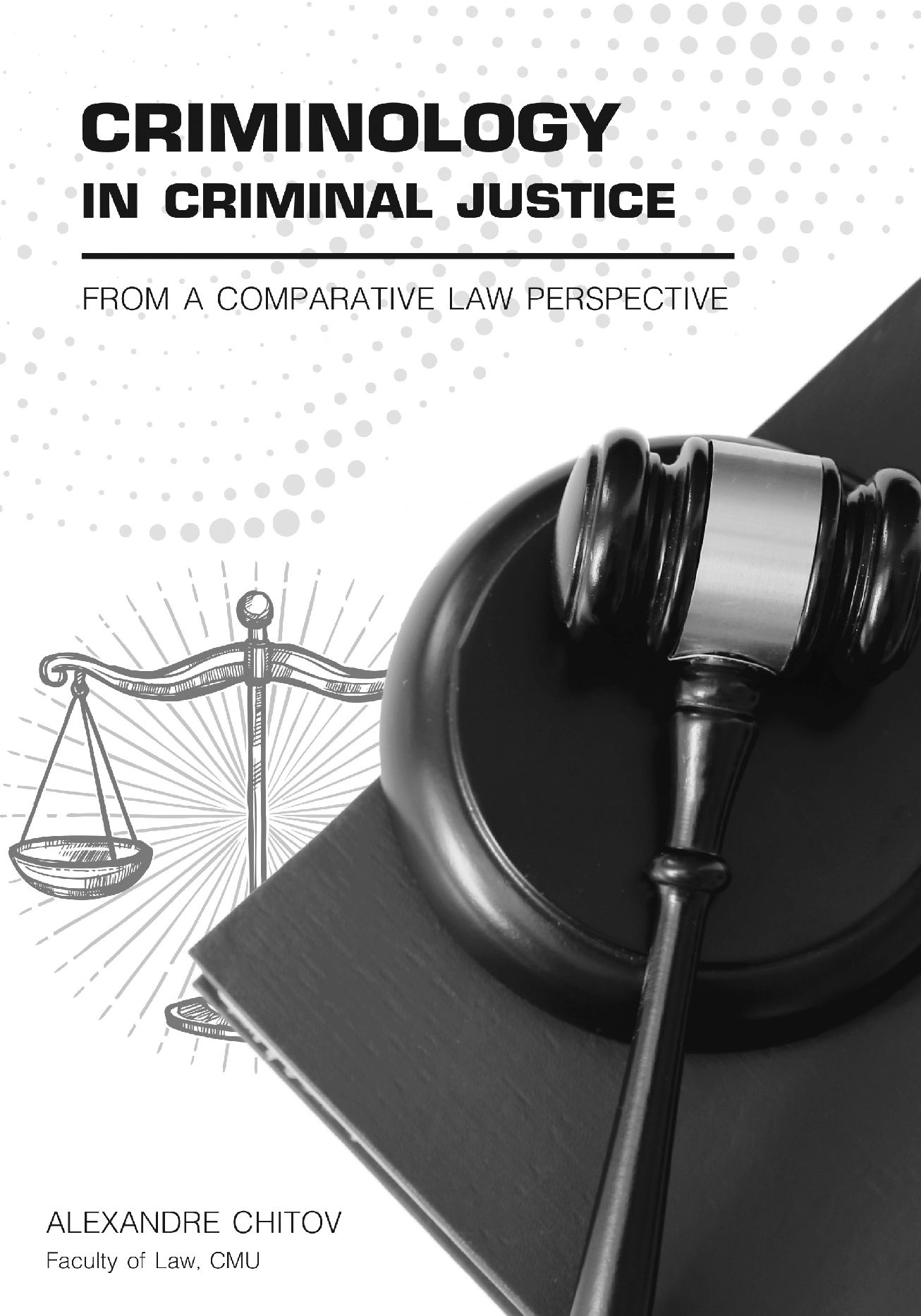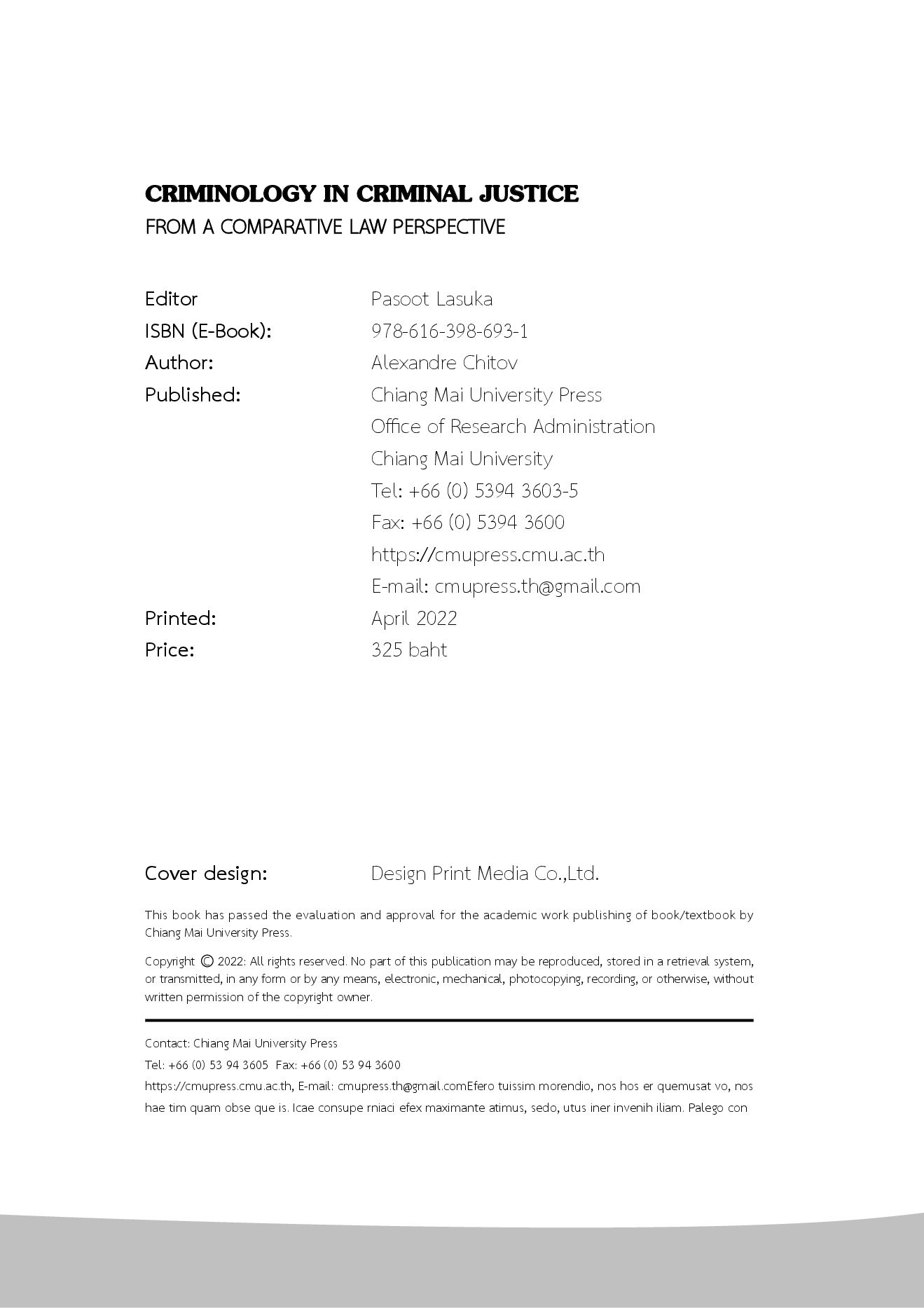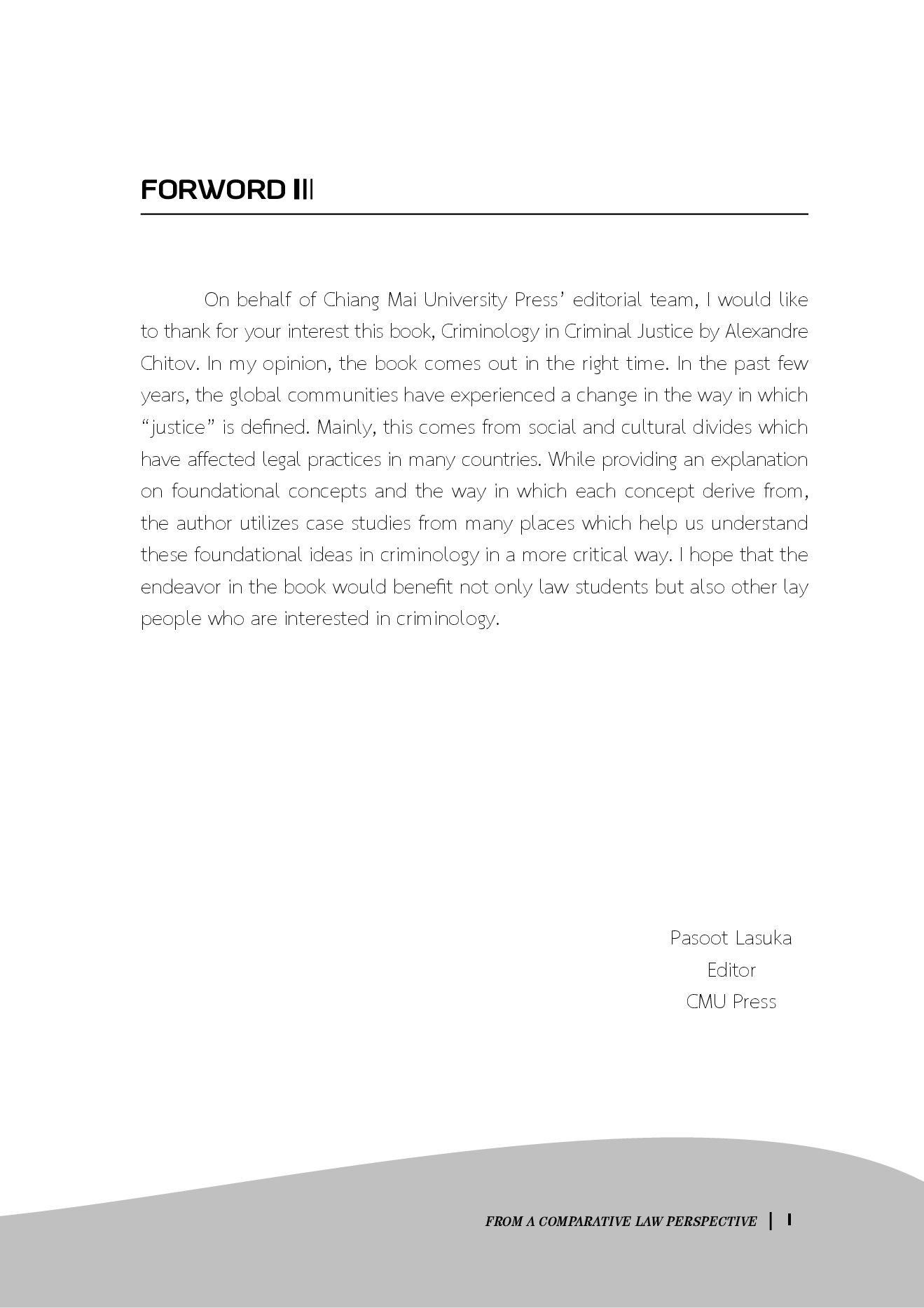| คงเหลือ | รอคิว | รอ/วัน |
|---|---|---|
| 1/1 | 0 | 0 |
- ประเภท : อีบุ๊ก
- สำนักพิมพ์ : CHIANG MAI UNIVERSITY PRESS
- Author : Alexandre Chitov
- ISBN :9786163986931
- ภาษา : english
- จำนวนหน้า : 440
- ขนาดไฟล์ : 11.21 MB
เพื่อใช้งานบนอุปกรณ์
FORWORD I
INTRODUCTION: CRIMINOLOGY AND COMPARATIVE LAW
Criminology and Criminal Justice 2
The Connection between Criminology and Criminal Law 3
Criminology and Comparative Law 5
The Limitations and Novelty of the Book 10
The Scope and the Content of the Book 12
References 14
PART I. THEORETICAL CRIMINOLOGY
CHAPTER I : REDISCOVERY OF THE METHOD OF CLASSICALCRIMINOLOGY
1. Introduction 20
2. The Object and a Motive of a Criminological Study 23
3. From Objectivity to Subjectivity of Crime 27
4. A Method of Classical Criminology 31
5. Qualitative and Quantitative Research in Classical Criminology 34
6. The Nature of the Classical Method 37
7. Limitations of a Criminological Method: Example of the Gluecks 37
8. Research, Surveillance, and Ethics 40
9. Classical Criminology and Evaluation of Rehabilitative Policy 43
10. Conclusion 46
References 48
CHAPTER II : CLASSICAL CRIMINOLOGY
1. Introduction 52
2. The Ideas of Cesare Beccaria 54
3. The Ideas of Jeremy Bentham 58
4. Rational Choice 61
5. The Routine Activity Theory 63
6. The Value of Morality and the Theory of Criminal Law 65
7. Conclusion 67
References 69

